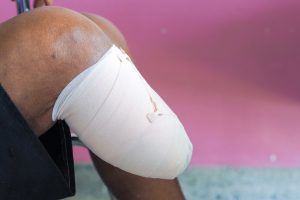Jurors handed down a $100 million Palm Beach medical malpractice verdict recently to the family of a boy who was mutilated in a botched circumcision that was performed 10 days after the doctor in question had his medical license revoked by the Florida Board of Medicine. The damage award is twice what the family had sued for, illustrating the impact the evidence and the child’s suffering had on those reviewing it. 
As longtime Palm Beach medical malpractice attorneys, this case represents an egregious disregard both for patient well-being and professional standards set forth for medical doctors.
According to The Palm Beach Post, the former OB-GYN did not attend the trial, nor did he hire an attorney to represent him in the matter. In previous statements, the ex-doctor stated that the child’s condition was the result of a congenital deformity, rather than a failed circumcision. A midwife testifying on behalf of the family told the court the child, now age 3, had no such deformity at birth.
Whether the family will ever actually receive any of that money remains to be seen. The former doctor has not yet paid a settlement owed to the surviving spouse of another patient who died after giving birth to the couple’s second child. The doctor delivered the child, left the hospital to change his scrubs, and only returned in time to watch his patient die, according to court records.
The doctor was also the subject of a 2017 expose by the local newspaper into the deaths of six patients in procedures gone wrong over his career of three decades. These incidents prompted the state’s medical board to vote to restrict the OB-GYN’s license – a fact he did not tell the aforementioned patient before he was involved in the delivery. Continue reading
 South Florida Injury Lawyer Blog
South Florida Injury Lawyer Blog










